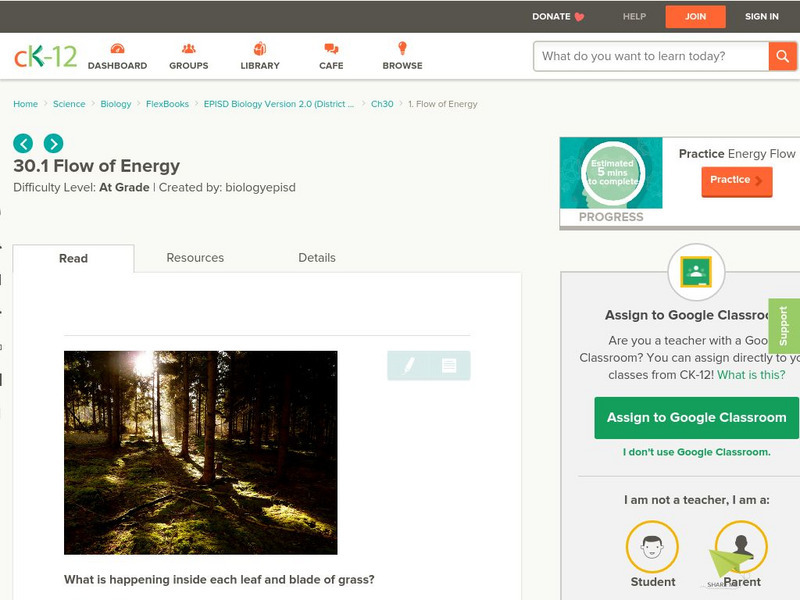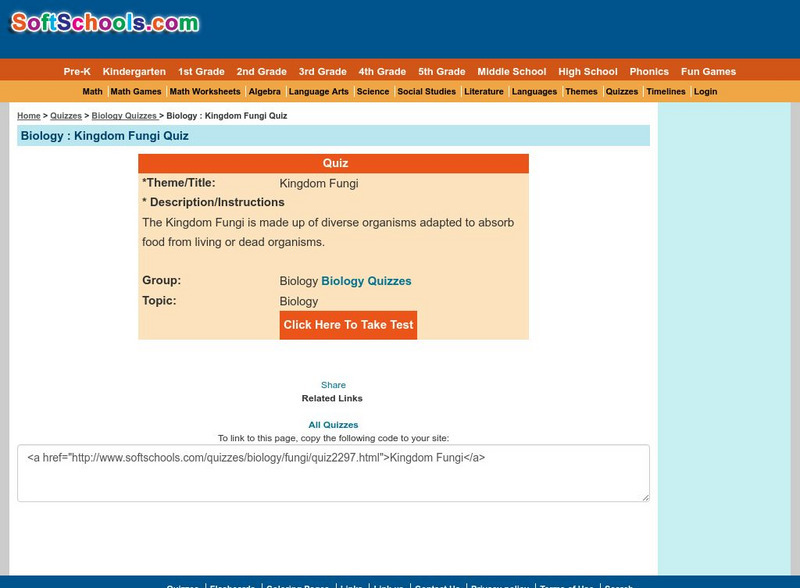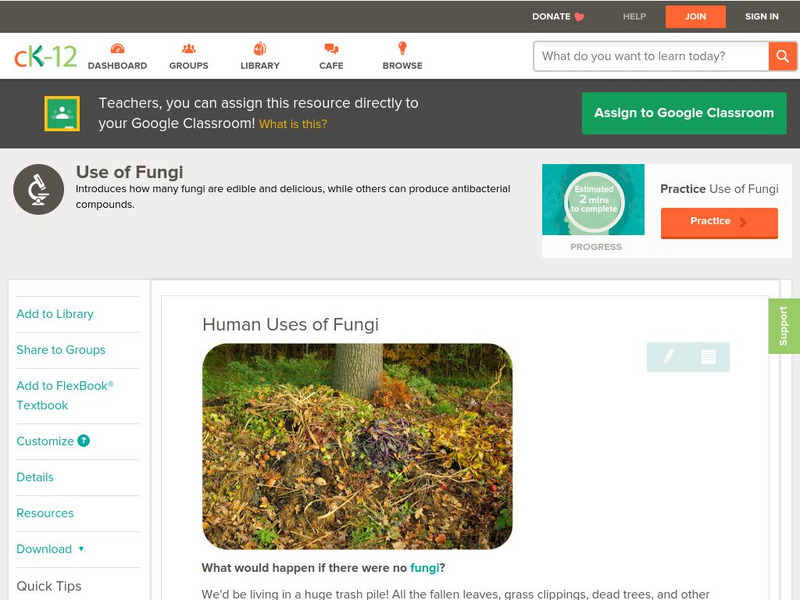NASA
Decomposers Get Energy From Dead Things
When life gives you mold, make penicillin. Scholars design an inquiry experiment to determine what causes rotting and mold growth. It also covers decomposers and the important role they play for other living things.
National Wildlife Federation
Soil Decomposers
The class studies the soil food web that includes earthworms and conduct four experiments using the crawly critters. Individuals determine whether earthworms are sensitive to light, touch, temperature, and acid.
NOAA
An Ocean of Energy
Young biologists trace the path of the sun's energy through marine ecosystems in the second part of this four-instructional activity series. Building on prior knowledge about producers, consumers, and decomposers students are...
NOAA
Understanding Food Chains and Food Webs
Jump into an exploration of marine ecosystems with the first lesson in this four-part series. After first learning about crustaceans, mollusks, and other forms of sea life, young marine biologists view a PowerPoint presentation that...
National Park Service
Living & Non-Living Interactions
What better way to learn about ecosystems than by getting outside and observing them first hand? Accompanying a field trip to a local park or outdoor space, this series of collaborative activities engages children in...
Curated OER
Composting
Using 2-liter bottles, junior ecologists create composting tubes in which they place nitrogen-rich and carbon-rich materials. They observe what changes occur over two weeks' time. Provide more specific direction to your class as to what...
Curated OER
Eco-Detectives
Students explore natural decomposers. In this decomposing lesson, students participate in a WebQuest to discover how nature handles decomposition. Students compare natural methods for decomposition with recycling efforts.
Curated OER
Our Friends or Foes
For this living organisms worksheet, 6th graders choose the multiple choice answer to 10 questions. Students then read and answer 10 statements as true or false and fill in the blanks to 5 statements.
Curated OER
Food Chains
Fourth graders study food chains, producers, consumers, and decomposers. They play a food chain game and create food chain mobiles or posters. They take a nature hike around the school and observe various parts of a food chain.
Curated OER
Forest Food Webs
Students consider the interdependency of life in a temperate forest by studying selected organisms from an Asian temperate forest and creating a food web.
Curated OER
The Life of Fungi
In this fungi worksheet, students will read about the three different ways that fungi get their food; decomposers, parasites, and mutualists. Then students will match three statements with the diagrams that fit the description.
Curated OER
Science: Where the Worms Live
Students build mine-earthworm habitats to discover their niche in them. They make predictions about what the niche looks like in a week and draw a picture of it. Students notice the tunnels in the soil and how the sand and dirt are now...
Curated OER
Identifying trophic levels and the skeletal system through Owl Pellets
Students identify a food chain sequence. They compare, identify, and record the rodent skeletal parts to a rodent skeletal diagram. Students construct a rodent skeleton from the skeletal parts found in the pellet. They are given the...
Curated OER
An Apple a Day
Seventh graders explore how to make careful observations and gain valuable practice in drawing what they observe. They stimulate questions about the changes occurring in the apple. Students have an opportunity to ask questions that can...
CK-12 Foundation
Ck 12: Episd Biology: Flow of Energy
[Free Registration/Login may be required to access all resource tools.] Students will study how energy flows through an ecosystem and learn about photoautotrophs and chemoautotrophs, the role of decomposers, and of consumers.
Soft Schools
Soft Schools: Kingdom Fungi Quiz
Take this interactive quiz over fungi, then review your score and any missed questions at the end.
Other
Paul's Garden World: The Science of Composting
Very thorough description of different organisms involved in decomposing organic material through composting. Includes actinomycetes, bacteria, fungi, and a variety of macro-organisms which also function as decomposers. Also discusses...
CK-12 Foundation
Ck 12: Life Science: Human Uses of Fungi
[Free Registration/Login may be required to access all resource tools.] Fungi are extremely important to the ecosystem because they are one of the major decomposers of organic material. But how do they help people? They are used to help...
BiologyWise
Biology Wise: Digestive System of an Earthworm
Provides information about the anatomy of the earthworm's digestive system and why the earthworm plays such an important role in soil health.



















